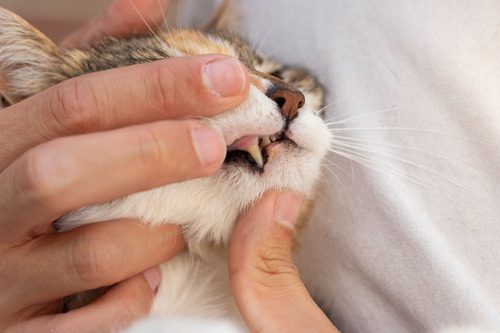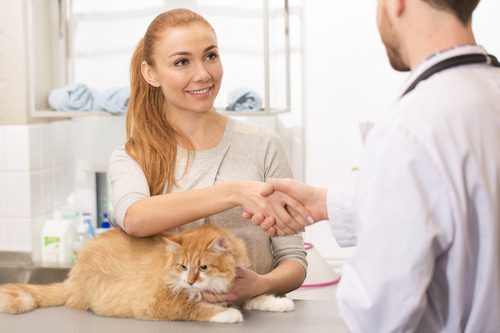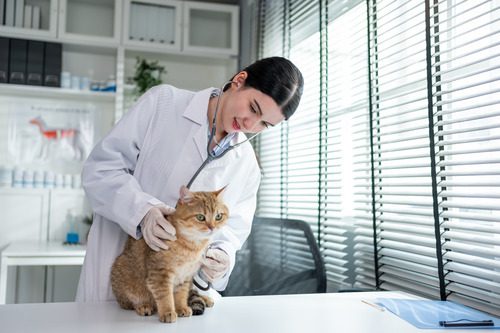3 Significant Benefits of Spaying or Neutering Your Pet in Clifton Park, NY
We recommend spay and neuter surgery for every dog and cat before they reach adulthood. They’re a vital part of veterinary care. They offer a variety of health and behavioral benefits and, most important, prevent unwanted litters, which contribute to stray dog and cat overpopulation and crowding in animal shelters.
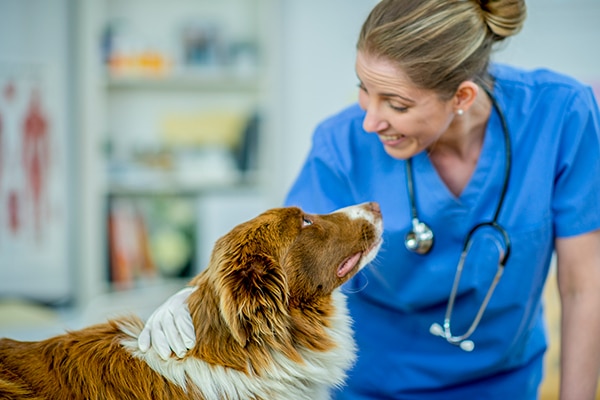
At Cornerstone Veterinary Hospital of Clifton Park, we take every opportunity to educate pet parents about the need for spays and neuters, and the many ways they make life better for pets and their families.
1. Spaying and Neutering Reduces Pet Homelessness in Clifton Park
One unfortunate reality of pets not being spayed or neutered is the millions of strays that result. Many animal shelters in the Clifton Park area struggle to care for all the dogs and cats that are brought to them and often lack sufficient resources to provide adequate care for all. Sadly, the only way to handle such a number is to euthanize otherwise healthy animals to make room.
By humanely sterilizing dogs and cats, we can ethically reduce the number of strays while also easing the pressure on animal shelters, which need all the support they can get.
Furthermore, it helps us prevent needless suffering among dogs and cats and gives them the chance to find lasting, loving homes.
2. Spay and Neuter Surgeries Improve the Long-Term Health of Dogs and Cats
Dogs and cats can experience a better quality of life as a result of their spay/neuter surgery, and they can also live longer. Here’s how.
Spaying
The benefits of spaying your female dog or cat in Clifton Park, NY include:
- Preventing reproductive cancers and breast tumors, which are malignant in roughly 50% of dogs and 90% of cats, according to the ASPCA.
- No more messy and frustrating heat cycles, and male dogs/cats getting agitated when your pet goes into heat.
- Preventing pyometra, a serious infection of the uterus that can be deadly if it isn’t treated soon enough.
- Your pet will no longer vocalize and/or urinate in an attempt to attract a mate.
Neutering
The benefits of neutering your male dog or cat include:
- Preventing testicular cancer and various prostate issues.
- Reducing or eliminating destructive behaviors such as urine marking/spraying, vocalizing, roaming to find a mate, and becoming aggressive.
- Neutering can also minimize any chances of your pet inappropriately trying to mount another pet, person, or inanimate object.
3. Spaying and Neutering is Cost Effective for Clifton Park Pet Parents
You have many responsibilities–and costs–to manage when it comes to keeping your companion healthy. While the prospect of paying for a surgery might be off-putting, in the long run, spaying/neutering is actually a cost-effective option.
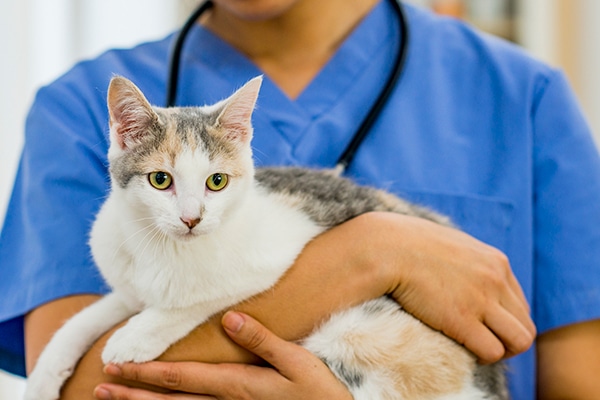
Raising a litter and keeping it healthy gets expensive quickly. Even if your pet does not become pregnant, they still run the risk of developing cancer, which especially costly to treat (if treatment is possible).
Common Spay and Neuter Myths
It’s understandable to have reservations about your pet undergoing surgery, but it’s also important to know the facts. Here are a few of the more prevalent misconceptions about spaying and neutering:
My pet should have at least one litter before their spay
Having a litter will not benefit your pet in any way. The longer you wait past the recommended age for your pet to be spayed, the higher their risk for mammary gland tumors and other cancers. It’s best to spay your pet before their first heat cycle to minimize that risk.
Spaying/neutering my pet will cause them to gain weight
Keeping your pet on a balanced, age-appropriate diet and making sure they get plenty of exercise will keep their weight under control. Your pet’s metabolism will naturally slow down as they get older, which is why it’s important to meet with your veterinarian to discuss any changes you need to make to their current diet plan.
Won’t spaying/neutering my pet change their personality?
While spaying/neutering does have an impact on hormone-fueled behaviors such as urine marking, vocalizing, and roaming, it will not alter your pet’s personality. Whether they are highly inquisitive and outgoing or shy and withdrawn, these traits will remain unchanged after their spay or neuter.
Helping Your Pet Recover from Their Spay/Neuter
Often, our cherished dogs and cats are practically back to their old selves mere hours after returning home from surgery. Yet, this can lead to complications with their recovery if they aren’t properly supervised and attended to while they’re healing.
Here are a few things you can do to ensure the best recovery for your pet:
- Check their incision site daily for swelling, skin hardening, discoloration, seeping, and/or torn stitches.
- Keep the incision area dry and clean at all times–no bathing or swimming until the stitches are out!
- Outfit your pet with an e-collar or fitted shirt/onesie to prevent them from licking at their incision site (it can get itchy as it heals).
- If you have other pets in your home, make sure your dog or cat is kept apart from them for a few days. Any roughhousing or grooming attempts by your other pets may result in torn stitches or an infected incision.
- Stay in contact with your veterinarian. We’re happy to answer your questions and offer suggestions to help make your life (and your pet’s) a little easier.
Recent Posts
My Cat Lost a Fang Tooth: What Do I Do?
My Cat Lost a Fang Tooth: What Do I Do? It’s always a little jarring to discover…
FHO Surgery in Cats
FHO Surgery in Cats When a cat experiences hip pain that limits movement and quality of life,…
Can Cats Get Parvo?
Can Cats Get Parvo? Parvo is a word that strikes fear into the hearts of many dog…
About Us
Originally opened as Animal Care Hospital by Dr. Mark Johnston in 1989, the hospital became Cornerstone Veterinary Hospital in 2015 when it was purchased by Drs. Alan and Lisa Knott. The name 'Cornerstone' holds a special place in their hearts, representing not only their Christian faith but also their commitment to being the cornerstone of the community in which they practice. As a family-owned and operated practice, every pet is treated as part of the family, ensuring they receive the highest standard of care. The team at Cornerstone Veterinary Hospital is dedicated to building lasting relationships with clients and their beloved pets, striving to be the cornerstone of the community in which they practice.
